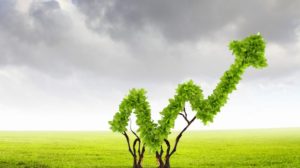 A recent McKinsey report looked at corporate sustainability and value creation and concluded that “Sustainability is a long-distance journey; the evidence is growing that it is one worth taking.”
A recent McKinsey report looked at corporate sustainability and value creation and concluded that “Sustainability is a long-distance journey; the evidence is growing that it is one worth taking.”
Over the past 20 years, the idea of corporate sustainability has become part of mainstream business discourse. Companies in many industries issue sustainability or corporate-social-responsibility reports; executives everywhere pledge allegiance to the idea. Even so, the concept still carries considerable baggage.
In a recent report for the UN Global Compact, 84 percent of the 1,000 global CEOs surveyed agreed that business “should lead efforts to define and deliver new goals on global priority issues.” But only a third said “that business is doing enough to address global sustainability challenges.”
Companies that have combined sustainability into their business strategy are 2.5 more successful than those who have not. McKinsey’s conclusion was “sustainability programs are not only strongly correlated with good financial performance but also play a role in creating it.”
Building a sustainable business can help enterprises become more profitable and successful. Accenture CEO Julie Sweet recently said that taking sustainability action provides an opportunity for companies to differentiate themselves from others too.
Profitability
Sustainability in-house policies can easily be leveraged to turn businesses into far more profitable entities. While going green is not always easy, especially for businesses, the alarm signals surrounding the rising sea levels, the pollution and the pressure from NGOs make most players in the business world consider alternatives to their not-so-green processes and protocols, products, and policies.
While many businesses think of sustainability as another way to market themselves, the change is still due to make a real difference when it comes to improving the environment.
According to the World Economic Forum, more than 75% of the manufacturers around the world experienced lower profit margins as their expenses with materials grew. Eco-friendly initiatives could help manufacturers reduce those costs by reducing waste and boosting the productivity of their materials.
Operating with respect for the environment certainly means a bit of effort on businesses’ part, but this can turn into their advantage. As of 2017, companies that focused on green innovation experienced an annual growth rate of 15%. Across the world, only small companies account for more than 90% of the businesses with deep incorporation of green policies.
Sustainability also offers an interesting way to scope out product innovations that use fewer resources or that meet specific social needs. Redesigning products and services around sus- tainability can drastically increase profits or reduce costs (see sidebar “Introducing the circular economy”).
Lower cost of debt and equity
Research by Deutsche Bank revealed that companies with high ratings for environmental, social, and governance (ESG) factors have a lower cost of debt and equity. Also, 89 percent of the studies they reviewed showed that companies with high ESG ratings outperform the market in the medium (three to five years) and long (five to ten years) term.
Carbon Neutrality and GHG Emissions
“Corporates have a responsibility in taking ownership of their carbon footprint. Companies that understand the triple bottom line of social, environment, and financial and impact of greenhouse gas emissions have enough reason to work towards carbon neutrality,” he added.
Cyient President and Chief Operating Officer Karthikeyan Natarajan said carbon neutrality by the mid-21st century is very much essential and technology has a significant role to play in creating sustainable initiatives. Their company is working towards helping clients with design for circularity; and environmental, social, and corporate governance (ESG) consulting areas to improve their contribution towards creating a decarbonized planet. “Decisions that businesses like us make will determine the course of where we are by 2040,” he added.
Changing Consumer and Legislative Expectations
The consumer today is growing more and more concerned with environmental matters but also with finding companies that align with their concerns regarding those.
Legislative frameworks around the world seem to be progressively focused on fuelling a circular economy model which means that new incentives are due to enter in force for the companies with similar policies and protocols. This opens new opportunities to similar companies, such as giving them a new competitive edge and helping them grow their profits.
Resources
- https://priceofbusiness.com/green-business-is-profitable-business/
- https://www.business-standard.com/article/companies/sustainability-can-help-companies-become-more-profitable-accenture-ceo-121021901311_1.html
- https://www.mckinsey.com/~/media/McKinsey/Business%20Functions/Sustainability/Our%20Insights/Profits%20with%20purpose/Profits%20with%20Purpose.ashx